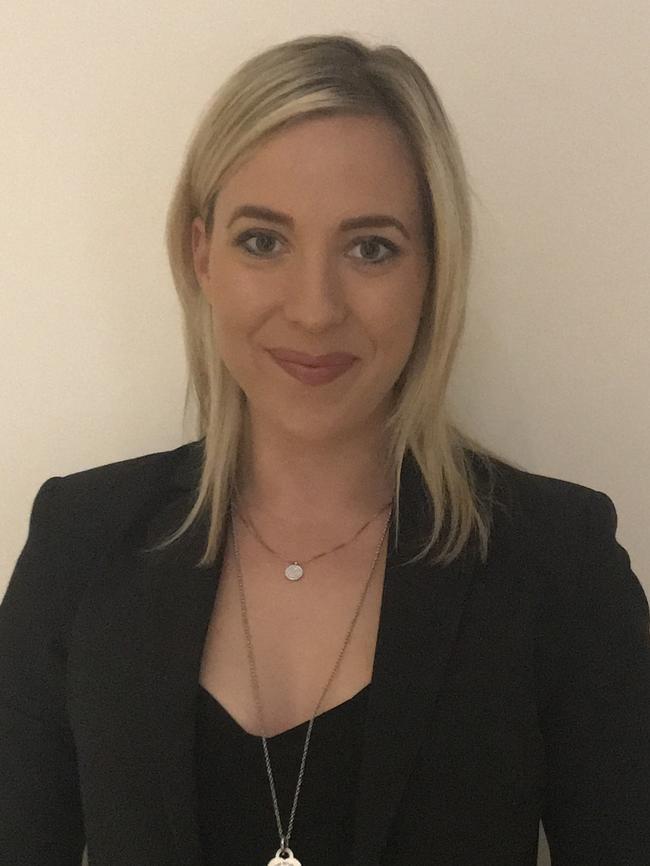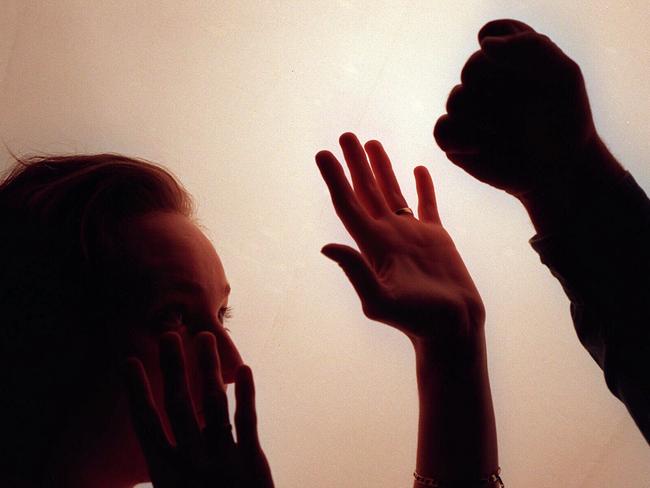Sarah Daffy: No one deserves this
Zoe Marshall’s courage in telling her story of domestic violence highlights the need for everyone in the community to be aware of what they can do for victims, writes Sarah Daffy.

Opinion
Don't miss out on the headlines from Opinion. Followed categories will be added to My News.
HE was never like it in the beginning” Rachel* explains as she tries to recall the exact point in time when her ex-partner transitioned from being her soulmate to an abusive monster.
“It was all about control — he just wanted to control everything I did,” she winces.
It started with him monitoring her phone. Each day she would wake to him trawling through her text messages and interrogating her about her conversations with friends, family and colleagues.
His hands would shake as he hunted for evidence of her being unfaithful or deceitful.

Eventually, he confiscated her phone — the fear of the unknown and her having conversations with others without him monitoring them was too much for him to bear.
That’s how domestic violence started for Rachel: a jealous partner with a desperate need to control her communication.
After two years, she knew she had to escape. The daily bashings, sexual assault, dictation of her attire and make-up, control of her finances and the psychological abuse was unbearable. Rachel reached out to a friend and sought refuge in a spare room.
After being away from Vincent* for four nights, she woke one evening to him bashing on the front door of her safe place.
“I’m going to kill your mother,” he shouted repeatedly. “I know where she is and I’m going over to kill her now.”
Rachel choked on the guilt of this harrowing prospect — she couldn’t live with it — not another problem becoming her fault.
RELATED NEWS
► Three dead in four days of domestic violence
► Fight against domestic violence: Migrants told not to bash wife
So she opened the door.
“His eyes were black — he just looked dead inside,” she said.
“He threw me to the ground and sat on top of me and pounded me with his fists. He pulled me to his car by my hair and smashed my face on the dashboard when I got in. I was sure I was going to die.”
Yet, despite the foul abuse at the hands of her partner, Rachel stayed in her relationship for another three years.
She lived in fear he would in fact kill her. His constant threats rendered her powerless — she was too frightened to leave.
Stories such as Rachel’s aren’t uncommon, with one in four women experiencing a form of domestic violence by their partner.
This week, Zoe Marshall bravely spoke out in The Daily Telegraph about the torture she endured as a victim of domestic violence in a relationship before she met her husband.
Like Rachel, she too feared for her life.
“I had moments where I thought I’m going to die or I’m going to kill him” she shared.
As a community, we’ve become better at understanding how prevalent domestic violence is but we still blame women for staying in abusive relationships by asking them, “why don’t you leave?”
The answer is simple — like for Rachel and Zoe, the risk is too great.
“When a woman leaves a situation of domestic violence, this is an extremely dangerous time for them. The threat of an abuser not being able to control their victim anymore sparks escalated violence as the perpetrator becomes aware of them losing control over their partner,” Moo Baulch, CEO of Domestic Violence NSW explains.
She urges people to be more understanding of the atrocities that these women face and calls damaging suggestions about women ‘tolerating’ abuse out for what it is — “victim blaming”.
She’s addressing community attitudes about domestic violence in a report that’s to be released later this year.
After speaking to Baulch, who works tirelessly each day to ensure resources are available for women who are facing this abuse, it’s clear that we as a community also have a responsibility in playing our part to solve the problem.

It was the people in Rachel’s life who loved her that helped her escape her brutal reality. Yet many of us are unsure about how we can offer support to victims — we can’t see an easy end to the suffering they endure.
We needn’t over-complicate our participation in supporting them and the significance of our kindness.
Often asking a victim of abuse if they’re OK, offering them unconditional support and listening to them is all the criteria that’s required when it comes to assisting them.
There is an abundance of community resources available that offer a segway for people to get help.
The Domestic Violence Line, 1800 Respect and Relationships Australia are just some of the selfless organisations that provide support to victims of violence and help them move on to live fulfilling lives in which they can be free of abuse.
It’s important to understand that domestic violence is not a women’s issue — it’s a community issue. And together we have a responsibility to not only help victims of abuse but stamp out the disparaging discourse among our peers that serves only to further isolate these women.
The #MeToo campaign has showcased a wonderful demonstration of this via the collective unification of the human spirit.
It’s vital for us to better understand the complex process that women go through when leaving a violent relationship.
Our support is what will get them there — victim blaming is just another cruel attack on women who’ve already been abused enough.
* Names have been changed
